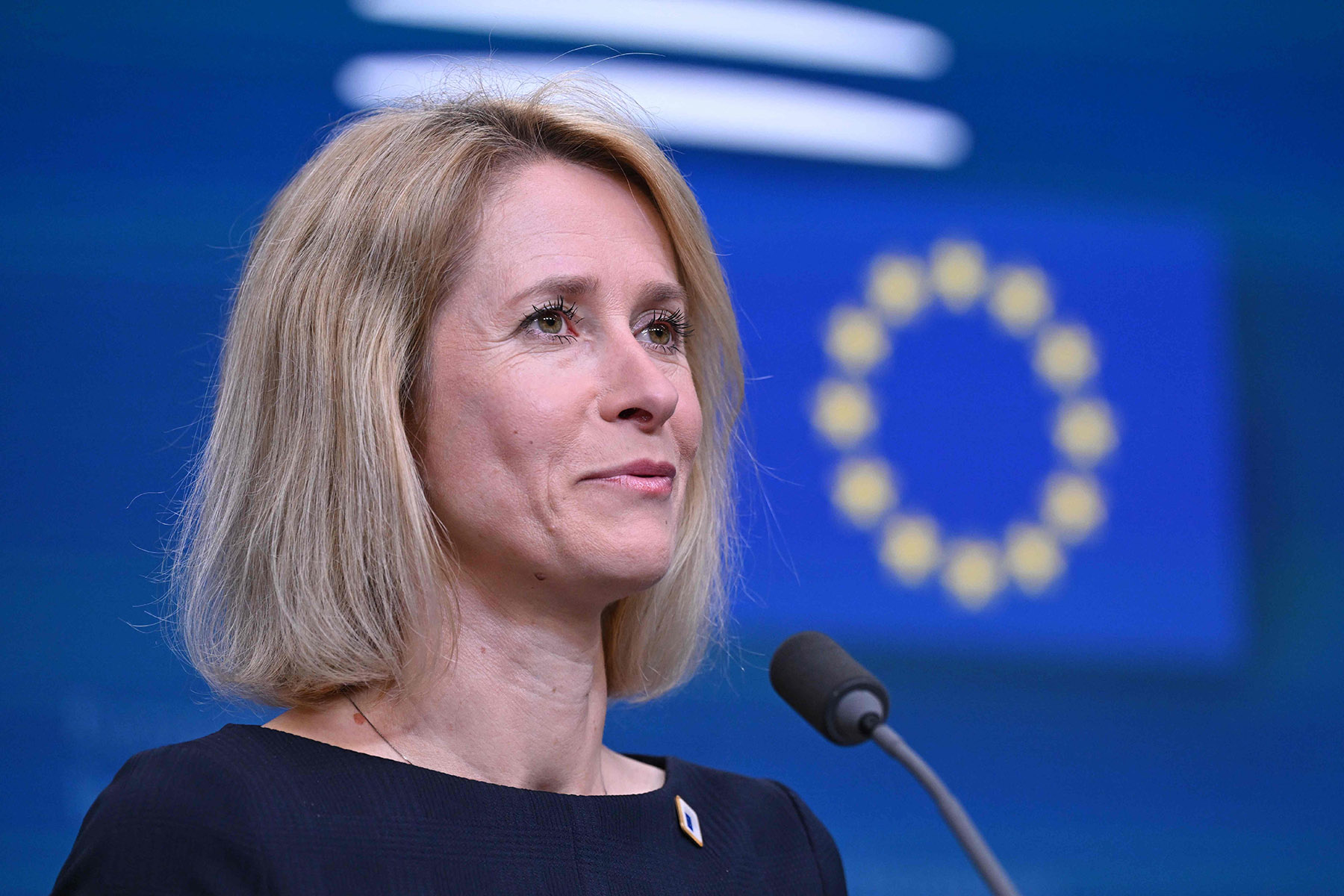Kallas faces challenges given complex geopolitical landscape, experts say

Estonian Prime Minister Kaja Kallas submitted her resignation on Monday after being nominated as the European Union's next top diplomat, which experts described as a challenging task given the increasingly complex global geopolitical landscape.
Kallas, the first female prime minister of Estonia, will remain head of the three-party government until a new coalition government is formed, likely in August.
READ MORE: Estonian president accepts prime minister's resignation
Talks are already underway among the three parties — the Reform Party which Kallas leads, the Social Democrats and the liberal Estonia 200 — about a possible new government. Kallas will also step down as leader of the Reform Party later this summer.
"I would now like to hear the opinions of all parliamentary parties on who they think will be able to form a workable majority government, given the strengths of the Riigikogu (the Estonian parliament)," Estonian President Alar Karis said on Monday after receiving Kallas' resignation.
He stressed that Estonia needs a government that will govern and make decisions that will help turn the economy around and ensure security.
"It has been a time full of crises, the milestones (such as) the coronavirus, the economic recession and the war in Europe …," Kallas summed up her role in the past three and a half years in Estonia, which has a population of 1.35 million.
Kristen Michal, minister of climate and Reform Party's candidate for the next prime minister, is the most likely new government leader.
Kallas will take up the post of High Representative for Foreign Affairs and Security Policy and vice-president of the European Commission later this year, a job that has been held by Spanish politician Josep Borrell since 2019.
The 47-year-old Kallas was until a few months ago among the hot contenders to succeed Jens Stoltenberg as NATO secretary-general. But after failing to get the job, she endorsed former Dutch prime minister Mark Rutte to be the next NATO boss.
Russia hawk
She has been widely regarded as a hawk on Russia following the outbreak of the Russia-Ukraine conflict in February 2022. But local media reported last year that while she publicly criticized those who continued to trade with Moscow, her husband was involved in a company that continued to operate in Russia.
The Russia-Ukraine conflict, the likely return of Donald Trump in the US, especially following Trump's pick of Ohio Senator J.D. Vance, regarded as anti-Ukraine, as running mate, as well as the crisis in the Middle East and complex relations with China will be among the major challenges for Kallas.
Apart from Russia, Kallas, whose father Siim Kallas served as Estonia's prime minister from 2002 to 2003 and a European commissioner from 2004 to 2014, has made few public comments on other foreign policy issues.
Kallas has proposed joint borrowing by the EU to fund the expansion of the bloc's defense capabilities but the idea has so far failed to convince fiscally prudent member states such as Germany.
Lai Suetyi, an associate professor at the Center for European Studies at Guangdong University of Foreign Studies, said choosing a Baltic politician as the EU's top diplomat demonstrates that Russia remains the utmost problem for the EU.
Lai expressed that she would not be surprised if Kallas has strong words on Russia and China, which has been perceived by some in the EU as a close ally of Moscow.
ALSO READ: EU leaders to agree on top jobs, strategic agenda with focus on defense
"She might also propose more defense cooperation under the EU flag. Yet given the intergovernmental nature of security issues in the EU, it is rather unlikely to be materialized."
"The job of High Representative for Foreign and Security Policy was designed for a world that no longer exists, (Kallas) will have to adapt (to) it a harsher world," Jean Pisani-Ferry of Brussels-based think tank, Bruegel, said on social media platform X.
He and several colleagues in a policy brief published on July 11 called on the European Council to give the top diplomat a stronger mandate to act on matters on which member states have decided to take common action.


